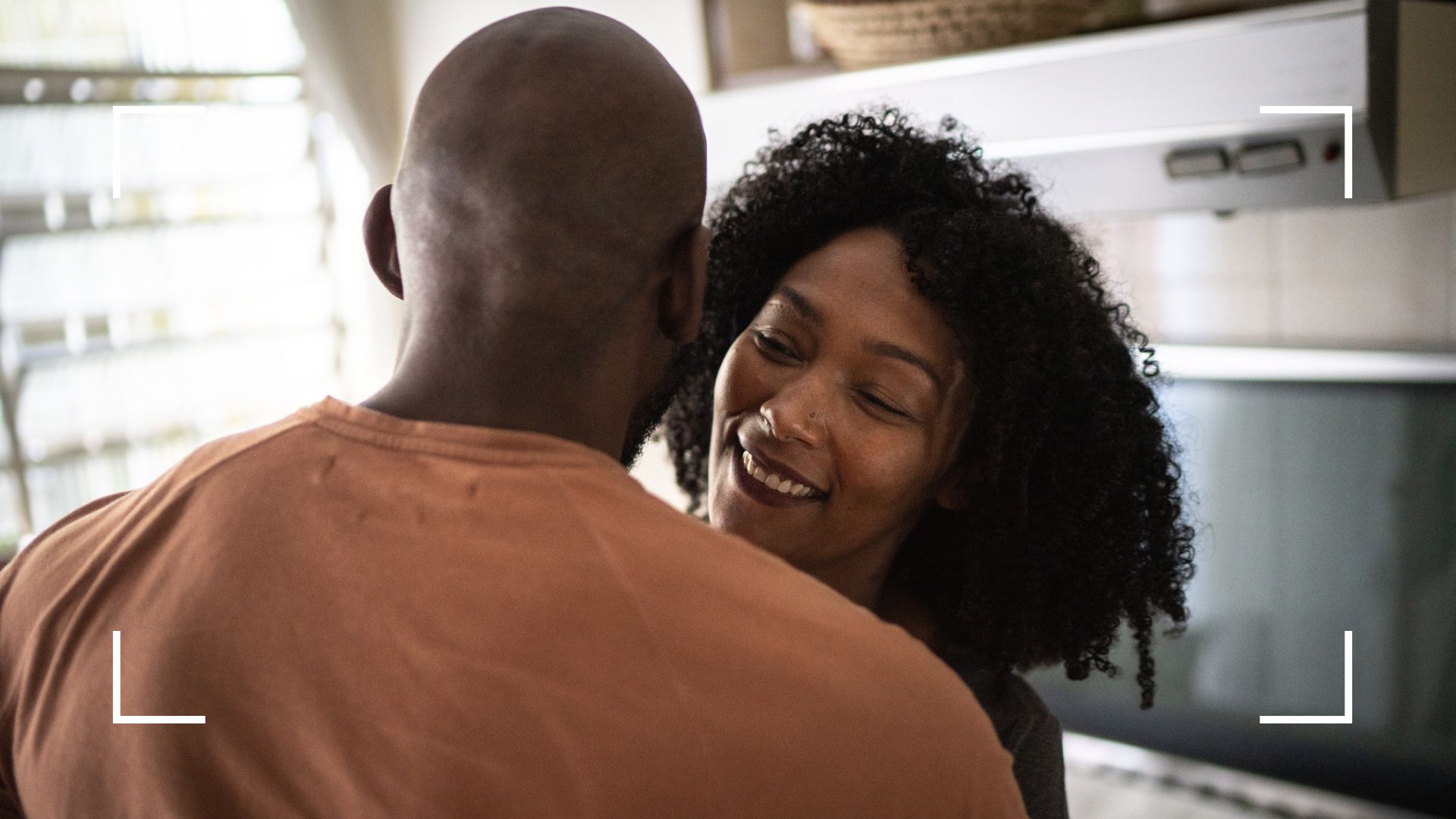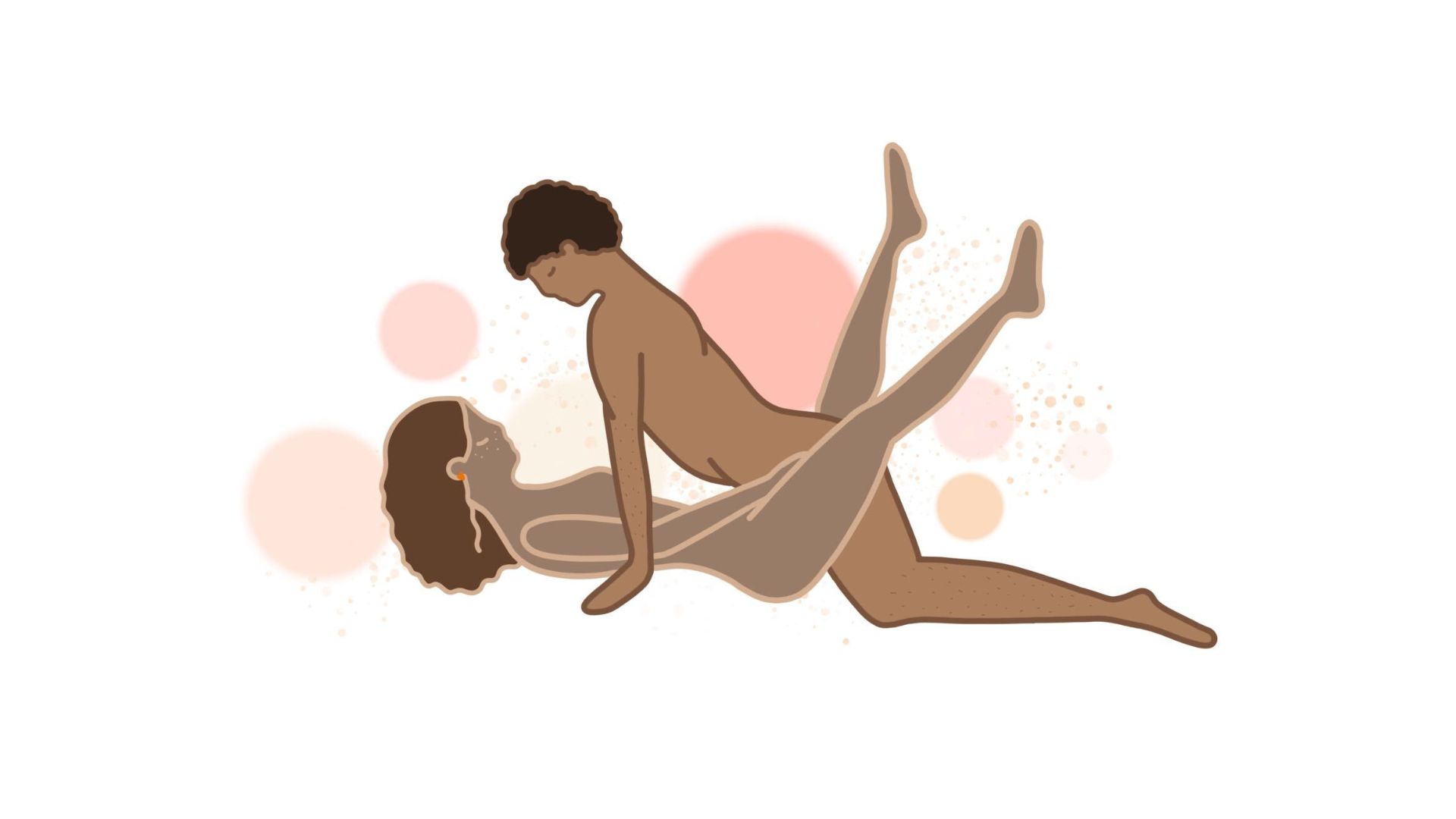
The flying eagle sex position is a popular move, so you may have heard of it already or even tried it yourself before. If you haven't, and you're into variations on the missionary position, it could just be the one for you.
There are several variations of the eagle with the traditional move having the bottom partner stretching their legs back as far toward their head as possible. Other popular variations include the broken eagle, suitable for fans of doggy style and those with slightly less flexibility, and the exposed eagle.
If you're into keeping things simple but you want to change things up a bit from time to time (and perhaps even learn how to have better sex in the process), the flying eagle could be the latest edition to your list of best sex positions. This is what a certified sex and relationship coach has to say about how to do the move right, its benefits, and making it work for you and your partner.
What is the flying eagle sex position?
The flying eagle is sometimes known as the soaring eagle, says Annabelle Knight, certified sex and relationship coach. "It involves one partner lying on their back with their legs spread as wide and as high as they can. This 'flying V' mimics an eagle's wings," she says. "The other partner then positions themself on top to penetrate."
As noted, the flying eagle is an easy spin on classic missionary sex, much like the closed missionary sex position. While the person on the bottom may need a little more flexibility than would otherwise be needed, it's hardly the butter churner sex position.
"This is a great position to add some variety to your lovemaking without needing absurd levels of athleticism," notes Knight, who also works with Lovehoney. "You may have even given it a go without knowing the name of it."

Benefits of the flying eagle sex position
1. Deeper penetration
For those who enjoy deeper penetration, the flying eagle is a real winner. Unlike similar positions, this one allows for better and more precise G-spot stimulation given the angle of entry.
"The bottom partner leaning their legs back opens them up, allowing for deeper penetration," Knight explains.
If you find it too much, you can lower your legs to the desired level and this will reduce the intensity of the angle. It'll also help support the penetrating partner, giving them something to hold onto.
2. Works the pelvic floor muscles
Famously, sex can help to strengthen the muscles around the pelvic floor area. This collection of muscles, which sit between the tailbone and the pubic bone in the pelvis, are essential for supporting bladder, bowel, and uterus health - but it can weaken over the years.
While one of the best pelvic floor trainers will be a more reliable way to strengthen the group, the flying eagle is beneficial, says Knight. "Spreading the legs tautens the region, exercising the pelvic floor muscles."
3. Increased intimacy
Unlike moves such as the ever-popular prone bone sex position and collapsed doggy style, the flying eagle has both partners facing each other. Needless to say, this is significantly more intimate.
"The flying eagle is a wonderful position for intimacy," says Knight, "Face-to-face, pressed together, it's a kinky way to get close to your partner and enjoy kissing, nipple play, and penetration all at once."
How to make the flying eagle even better
The flying eagle sex position is a great move all on its own - but there are a couple of things you can do to make it even better.
"It's very easy to add in some toys to this position," says Knight, including clitoral suction vibrators or a vibrating prostate massager. Just as much as the move opens up the bottom partner for deeper penetration, it also opens up the vulva, making stimulation of the clitoris a lot easier too. You could use one of the best bullet vibrators for this too, for example.
Also, Knight says, "In its standard form, the bottom partner needs strong thigh muscles. The top partner needs upper body strength to hold their own weight. However, to make it easier, the bottom partner can lean their legs against a wall or headboard to prop them up and the top partner can kneel rather than plank, and even rest their weight on the bottom partner for support."







